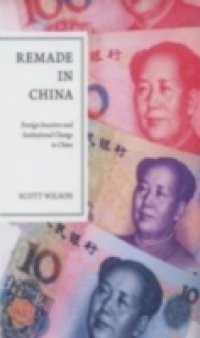Since opening to foreign investment in 1979, China has emerged as the leading investment site for multinational corporations. Remade in China looks beyond the macroeconomic effects of Chinas investment boom to analyze how foreign investors from the US, Japan, and other nations are shaping Chinas legal, labor, and business reforms. Wilson draws on interviews with nearly 100 foreign and local managers, attorneys, workers, and members of the business community to explain why Chinese laborers and firms have gravitated toward foreign models, especially US businesses and their institutions. Wilson uses the term state-guided globalization to describe how China has used foreign engagement to advance its domestic reform objectives and to enhance its role in international society. Rather than undermining state power, globalization actually has allowed Chinas state to push through difficult labor and legal reforms. Wilson concludes that Chinese policy makers drew lessons from foreign investors and foreign legal experts on how to introduce difficult labor market reforms in its state-owned enterprises and how to promote rule of law. Remade in China examines globalization and foreign investment in a different light, showing how these developments have helped to chart Chinas entry into international society. Chinas WTO accession agreement and international norms have established parameters by which to judge Chinese legal and business reforms. Although Chinas rise is a grave concern to the world, Remade in China asserts that Chinese leaders now see compliance with international rules as a means to secure more investment and to enhance their international legitimacy. Wilson provides a lucid and insightful analysis of how foreign and domestic actors, from political leaders to average laborers, have contributed to remaking Chinas institutions.

